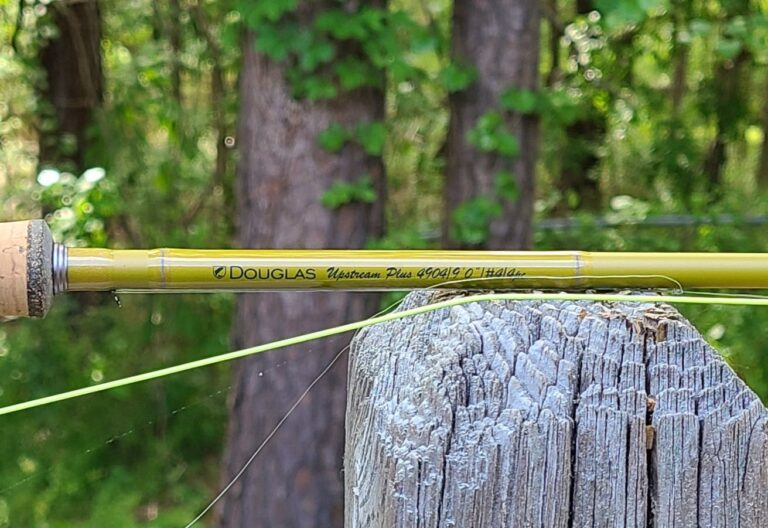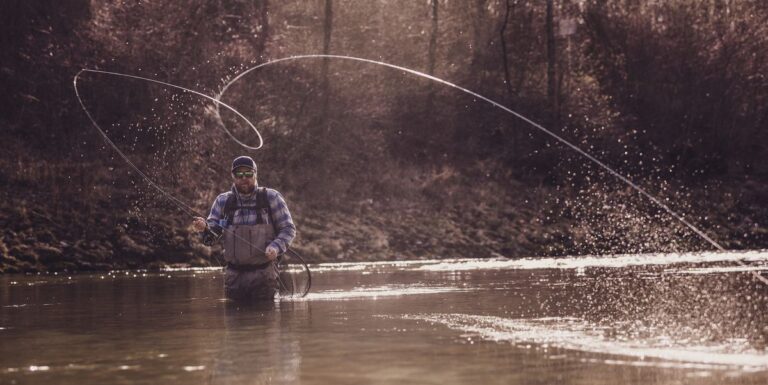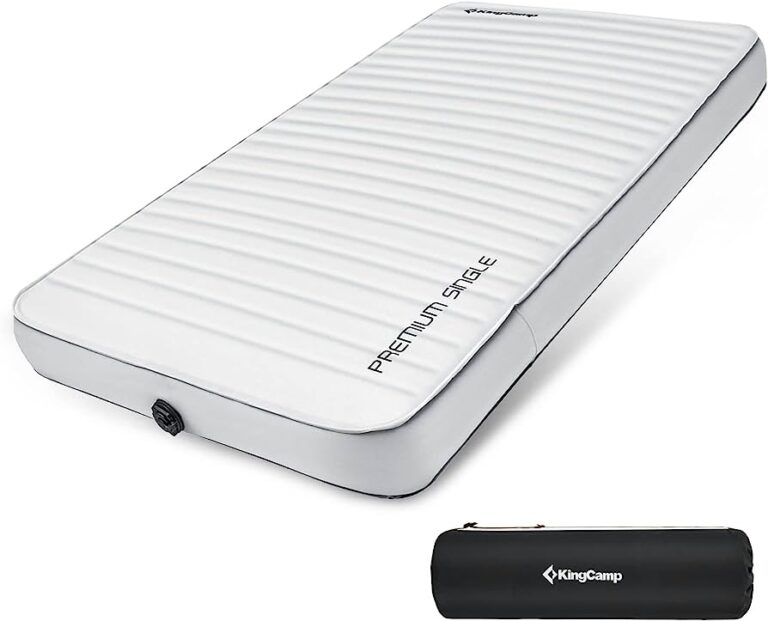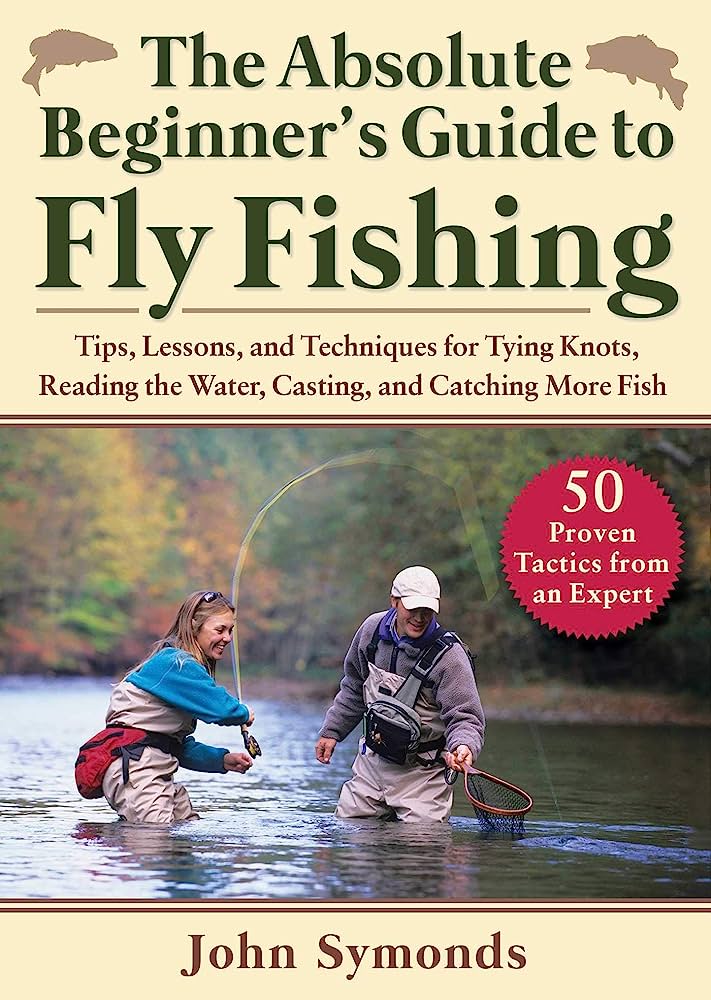The best fly fishing rod for beginners is the orvis encounter combo. This high-quality rod offers excellent performance and durability, making it perfect for newcomers to the sport.
With its affordable price and versatile design, the orvis encounter combo is an ideal choice for those looking to start fly fishing. Fly fishing is a popular and captivating sport that requires the right equipment to fully enjoy the experience.
As a beginner, choosing the right fly fishing rod can be a daunting task with the multitude of options available. However, the orvis encounter combo stands out as the best choice for beginners due to its exceptional quality and beginner-friendly features. This combo includes a well-crafted rod that provides excellent performance and durability, making it easy for beginners to learn and master the art of fly fishing. Furthermore, affordability and versatility make the orvis encounter combo a perfect introduction to the world of fly fishing.

Credit: www.amazon.com
Understanding Fly Fishing Rods
Basics Of Fly Fishing Rods
Fly fishing rods are the core equipment for any angler interested in this unique and captivating fishing technique. Understanding the basics of fly fishing rods is essential for beginners to make an informed decision when purchasing their first rod. Here are the key points to consider:
- Length: Fly fishing rods range in length from 7 to 10 feet, with shorter rods offering better control in tight spaces and longer ones providing more casting distance.
- Weight: Fly rods are classified by weight, usually indicated by a number from 1 to 12. Lighter rods handle smaller flies and delicate presentations, while heavier ones are better for larger flies and fish.
- Line weight compatibility: It’s crucial to match the fly rod’s weight with the corresponding weight of the fly line you will be using.
- Flexibility: Rods vary in flexibility, commonly referred to as the action. Fast-action rods are stiff and provide more power for long-distance casting, while slow-action rods bend more and are better suited for short, precise casts.
Key Components Of A Fly Fishing Rod
To truly understand fly fishing rods, it’s essential to have a basic knowledge of their key components. These components work together to deliver the performance and feel that every angler desires. Let’s take a closer look at them:
- Grip: The grip, also known as the handle, is where you hold the rod. It should be comfortable and suitable for your casting style. Common grip materials include cork and synthetic substances.
- Reel seat: The reel seat is the part of the rod where the fly reel is attached. It should securely hold the reel in place while allowing for easy removal and adjustment when necessary.
- Blank material: The rod blank is the main body of the rod. It can be made from various materials such as graphite, fiberglass, or a combination of both. Each material has its own characteristics, affecting the rod’s weight, sensitivity, and overall performance.
- Rod action: The action refers to how the rod bends and recovers when casting. There are three main categories: fast, medium, and slow. The action affects casting distance, accuracy, and the rod’s ability to handle different fishing scenarios.
Remember, understanding these components will help you make an informed decision and choose the best fly fishing rod for your needs. Take the time to assess your preferences and fishing style before making a purchase. Happy fishing!
Factors To Consider When Choosing A Fly Fishing Rod
Weight And Length Considerations
Choosing the right fly fishing rod can make all the difference, especially for beginners. When it comes to selecting a rod, there are several factors to consider. Let’s dive into the weight and length considerations when choosing a fly fishing rod:
- Understanding rod weight and its impact on casting: The weight of a fly fishing rod refers to its ability to cast different line sizes. It is important to choose a rod that matches the weight of the fly line you plan to use. Here are some key points to consider:
- A lighter weight rod, such as a 3 or 4 weight, is generally easier to handle and recommended for beginners.
- Lighter rods are ideal for smaller fish species and delicate presentations, while heavier rods are better suited for larger fish and casting in windy conditions.
- Recommended rod length for beginners: The length of a fly fishing rod plays a crucial role in casting accuracy and control. Here are some guidelines for beginners:
- A rod length between 8 to 9 feet is often recommended for beginners as it provides a good balance of versatility and ease of use.
- Longer rods offer more reach and control, while shorter rods are more maneuverable in tight spaces.
- Consider the fishing environment and the type of fishing you plan to do when selecting the appropriate rod length.
Flexibility And Action
The flexibility and action of a fly fishing rod impact its casting performance and overall feel. Understanding the different types of rod actions and their suitability for beginners is essential. Here are some key points to consider:
- Different types of rod actions and their suitability for beginners: Rod action refers to how much the rod bends and where it bends under pressure. Here are the main types of rod actions:
- Fast action: These rods bend mostly towards the tip and are known for their accuracy and distance casting ability. However, they require more skill and technique to handle effectively.
- Medium action: These rods bend more evenly throughout the rod and offer a balance between power and flexibility. They are ideal for beginners as they provide forgiveness and better feedback.
- Slow action: These rods bend from the base towards the tip, providing a deep and slow flex. They are easier to cast and control, making them suitable for beginners and delicate presentations.
Durability And Build Quality
A strong and durable fly fishing rod is essential, especially for beginners. Here’s why durability and build quality matter:
- Importance of a strong and durable rod for beginners: Fly fishing rods can face rough conditions and accidental impacts. Investing in a rod with good build quality ensures it can withstand such situations and last longer.
- Consider rods made of high-quality materials, such as graphite or carbon fiber, as they offer strength and durability.
- Look for rods with sturdy reel seats and strong guides that can handle the stress of constant casting and fighting fish.
Materials Used In Rod Construction
The materials used in fly fishing rod construction can greatly affect its performance, weight, and durability. Here are some key points to consider:
- Graphite rods: Graphite rods offer a great balance of strength, sensitivity, and lightness. They are the most common material used in rod construction, making them suitable for beginners.
- Fiberglass rods: Fiberglass rods have a slower action and are more forgiving, making them ideal for beginners learning the casting technique.
- Bamboo rods: Bamboo rods have a classic feel and are favored by traditionalists, but they require more maintenance and skill to handle effectively.
Skill Level And Fishing Conditions
Matching the fly fishing rod to your skill level as a beginner is crucial for an enjoyable fishing experience. Additionally, considering the fishing environment and targeted species is essential. Here are some key points to consider:
- Matching the rod to your skill level as a beginner: As a beginner, it’s important to choose a rod that suits your current skill level. Consider the following factors:
- Start with a rod that has a forgiving action, such as a medium or slow action rod.
- Choose a rod that feels comfortable and easy to handle, allowing you to focus on developing your casting technique.
- Considering the fishing environment and targeted species: Different fishing environments and target species may require specific rod characteristics. Here are some considerations:
- For small streams, a shorter rod with delicate presentation abilities may be preferable.
- If you plan to fish in windy conditions or target larger fish, consider a longer and more powerful rod for better control and casting distance.
Remember, selecting the best fly fishing rod for beginners involves a careful balance of weight, length, flexibility, durability, materials, skill level, and fishing conditions. Consider these factors to find a rod that suits your needs and enhances your fishing journey.
Happy casting!
Top Fly Fishing Rods For Beginners
Fly fishing is a captivating and rewarding sport that offers excitement and challenges for beginners. One crucial element of fly fishing is the fishing rod itself, as it plays a pivotal role in your fishing experience. If you’re new to fly fishing and not sure which rod to choose, fear not! In this section, we will explore the top fly fishing rods for beginners, including the key features, pros and cons, as well as user reviews and ratings.
So, let’s dive right in!
Brand Name A
Description and features of [brand name a] fly fishing rod:
- High-quality construction: [brand name a] fly fishing rod is crafted with precision and durability in mind, ensuring it can withstand the demands of fly fishing.
- Lightweight design: This rod boasts a lightweight construction, making it easy to handle and maneuver, even for beginners.
- Versatility: Suitable for various fishing conditions, [brand name a] fly fishing rod offers versatility that allows you to fish in different settings.
- Smooth action: The rod’s smooth action enhances casting accuracy and improves your overall fishing experience.
Pros for beginners:
- Easy to learn with: [brand name a] fly fishing rod is beginner-friendly, allowing novice anglers to grasp the fundamentals of fly fishing quickly.
- Forgiving and responsive: This rod offers forgiveness, meaning it helps compensate for mistakes in casting technique, ensuring a more enjoyable learning process.
- Good value for money: [brand name a] fly fishing rod provides excellent quality at an affordable price, making it a great choice for beginners.
Cons for beginners:
- Limited advanced features: While [brand name a] fly fishing rod is perfect for beginners, it may lack some advanced features that experienced anglers may prefer.
- Requires additional accessories: To optimize your fly fishing experience, you may need to purchase additional accessories that are not included with the rod.
User reviews and ratings:
- John: “as a beginner, i found the [brand name a] fly fishing rod incredibly easy to use. It helped improve my casting accuracy, and i’m impressed with its durability.”
- Sarah: “i purchased the [brand name a] fly fishing rod based on recommendations for beginners, and i couldn’t be happier. It’s lightweight, responsive, and has exceeded my expectations.”
Brand Name B
Description and features of [brand name b] fly fishing rod:
- Superior craftsmanship: [brand name b] fly fishing rod is meticulously crafted with attention to detail, ensuring top-notch quality and performance.
- Enhanced sensitivity: This rod offers excellent sensitivity, allowing you to detect even the subtlest of strikes for a more thrilling fishing experience.
- Ergonomic design: Designed with comfort in mind, [brand name b] fly fishing rod features an ergonomic handle that reduces fatigue during long fishing sessions.
- Powerful backbone: The rod’s robust backbone provides the strength needed for handling larger fish and challenging fishing conditions.
Pros for beginners:
- Excellent sensitivity: The heightened sensitivity of [brand name b] fly fishing rod helps beginners develop a better feel for their fly presentation and detect bites more easily.
- Great for versatility: Whether you’re casting in rivers, lakes, or streams, the [brand name b] fly fishing rod delivers outstanding performance in various fishing environments.
- Provides room for growth: With its powerful backbone, this rod allows beginners to grow into their fly fishing journey and handle more demanding fishing situations over time.
Cons for beginners:
- Higher price range: [brand name b] fly fishing rod falls into a slightly higher price range, which may be a consideration for beginners on a tight budget.
- Requires finesse: Beginners may need to develop proper casting technique and finesse to take full advantage of [brand name b] fly fishing rod’s performance capabilities.
User reviews and ratings:
- Mark: “i splurged on the [brand name b] fly fishing rod, and it has been worth every penny. The sensitivity and power of this rod have greatly elevated my fly fishing experience.”
- Emma: “as a beginner, i was initially hesitant to invest in [brand name b], but it has exceeded my expectations. The rod’s versatility and top-quality construction make it a joy to fish with.”
Brand Name C
Description and features of [brand name c] fly fishing rod:
- Innovative technology: [brand name c] fly fishing rod incorporates cutting-edge technology, resulting in advanced features and exceptional performance.
- Precision and balance: This rod is engineered with precision and balance, ensuring optimal casting distance and accuracy.
- Durable materials: [brand name c] fly fishing rod is constructed using high-quality materials that enhance its durability, providing long-lasting performance.
- Lightweight and portable: Designed for on-the-go anglers, [brand name c] fly fishing rod is lightweight and easily portable, making it convenient for travel.
Pros for beginners:
- High-performance capabilities: [brand name c] fly fishing rod offers a high-performance level that allows beginners to learn and improve their skills quickly.
- Travel-friendly: Its lightweight and portable design make this rod an excellent choice for beginners who enjoy exploring different fishing locations.
- Enhanced casting distance: The precision and balance of [brand name c] fly fishing rod contribute to longer and more accurate casts, providing beginners with a helpful advantage.
Cons for beginners:
- Higher price point: [brand name c] fly fishing rod falls into a higher price category, which may be a consideration for beginners with a limited budget.
- Learning curve: The advanced features of this rod may have a steeper learning curve for novice anglers, requiring more practice to fully harness its capabilities.
User reviews and ratings:
- Michael: “the [brand name c] fly fishing rod took my fly fishing experience to new heights. Its precision and balanced casting are unlike anything i’ve used before.”
- Lisa: “i was initially intimidated by the [brand name c] fly fishing rod’s advanced features, but it has pushed me to improve my skills. It’s a fantastic investment for both beginners and experienced anglers.”
With these top fly fishing rod options for beginners, you can confidently embark on your fly fishing journey. Each brand offers unique features, advantages, and user satisfaction, catering to different preferences and budgets. Consider your specific needs and fishing style to choose the fly fishing rod that suits you best.
How To Choose The Best Fly Fishing Rod For Beginners
Choosing the right fly fishing rod is crucial for beginners as it can greatly impact their fishing experience. With so many options available, it’s important to consider several factors before making a decision. Here are some key points to keep in mind:
Considering Personal Preferences And Fishing Style
- Determine the type of water you’ll primarily be fishing in, such as rivers, lakes, or saltwater.
- Consider the target species you plan to catch, as different rods are better suited for different types of fish.
- Think about your casting style and the distance you typically need to cast.
- Consider the weight of the rod, as it affects how long you can comfortably fish without fatigue.
Seeking Expert Advice And Recommendations
- Reach out to experienced fly anglers or fishing guides who can provide valuable insights.
- Visit local fly fishing shops where knowledgeable staff can guide you in selecting the right rod.
- Join online fly fishing forums or communities where you can ask for recommendations and tips from experienced anglers.
Trying Out Different Rods Before Making A Decision
- Take the opportunity to test out different rods, if possible, before making a purchase.
- Attend fly fishing expos or events where you can try casting with various rods.
- Rent or borrow rods from friends or rental shops to get a feel for different options.
Budget Considerations And Value For Money
- Determine your budget range before exploring rod options.
- Research different brands and models, comparing their features and prices.
- Look for rods that offer good value for money, considering their quality, durability, and performance.
Remember, the best fly fishing rod for beginners may vary depending on individual preferences and fishing style. It’s essential to consider personal factors, seek expert advice, try out different rods, and find the right balance between budget and value for money.
By carefully considering these aspects, beginners can ensure they choose a rod that enhances their fishing experience and sets them up for success in the world of fly fishing.
Conclusion
Finding the best fly fishing rod for beginners is no easy task, but with the right information and guidance, you can make an educated choice. Remember, comfort and versatility are key when starting out. Look for a rod that is lightweight and easy to handle, with a medium-fast to fast action for improved accuracy and distance.
The length of the rod should be around 8. 5 to 9 feet, enabling better control and casting ability. Additionally, opt for a rod that comes with a warranty, as this can give you peace of mind knowing you’re covered in case of any defects or damages.
Don’t forget to consider your budget and overall preferences. With the right beginner fly fishing rod in hand, you’ll be ready to embark on countless adventures and create lasting memories on the water. Happy fishing!





